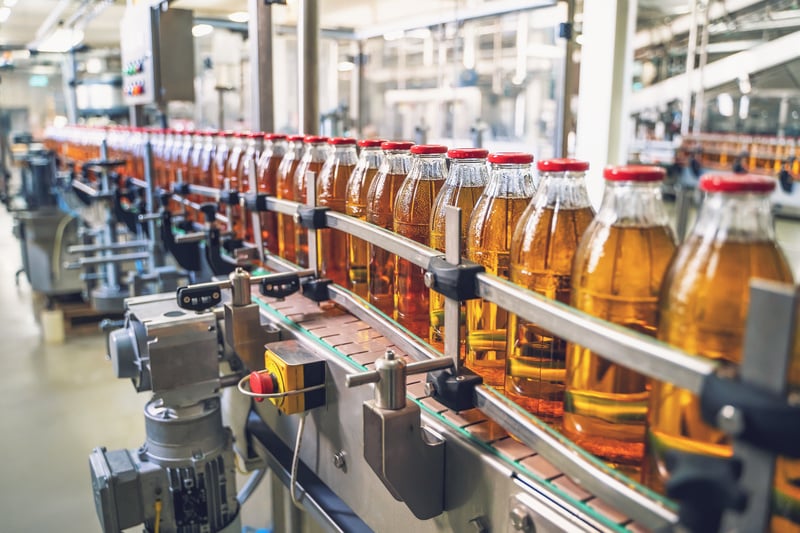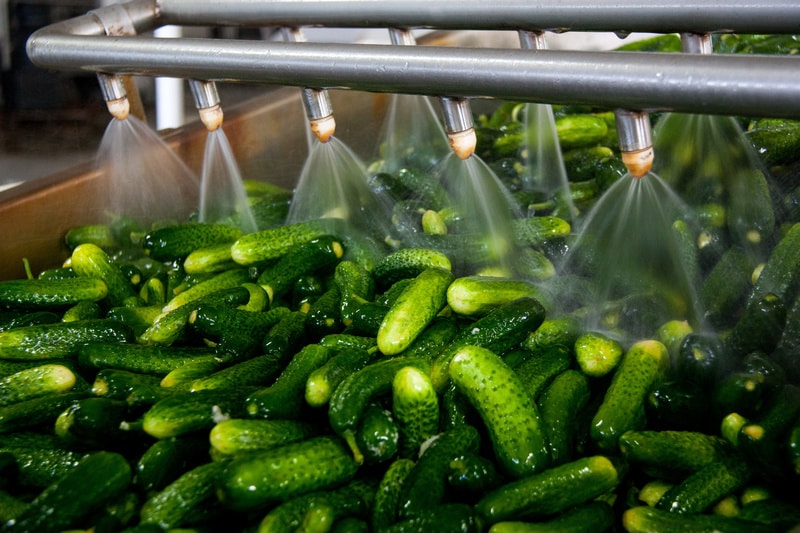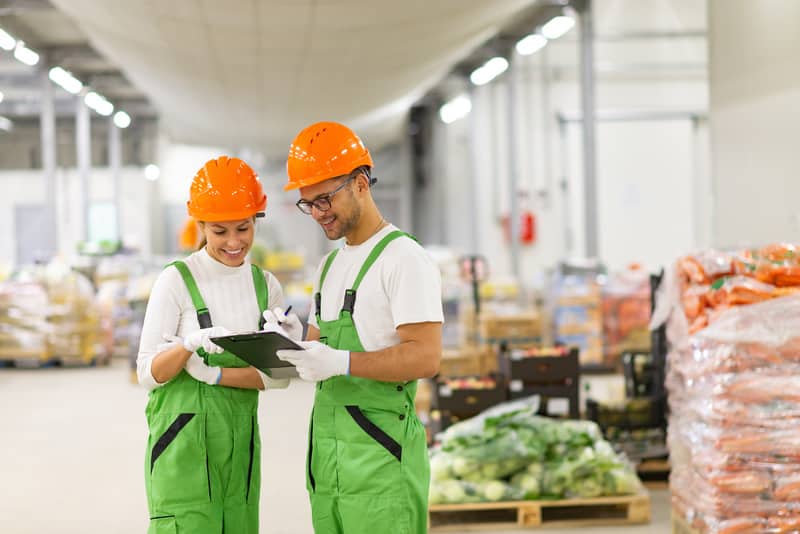There are many misconceptions surrounding food safety cleaning that often prevent food manufacturers from understanding how important the service is.
To put it bluntly, if you’re in the food processing industry, food safety is vital to the longevity of your business and its premises. Food safety cleaning encompasses so many different facets of food hygiene. From audit cleaning to the use of industrial chemicals and equipment, food safety cleaning is much more than your run-of-the-mill factory clean.
That being said, many businesses don’t understand the significance of food safety cleaning and have a lot of questions regarding the service.
We’re here to give a comprehensive answer to the top five frequently asked questions.

What is food safety cleaning?
We’re getting straight to the point here but why not hit the ground running? With a clear understanding of what food safety cleaning involves, it helps to shed light on why it’s so important for every business in the food processing industry, big or small.
Food safety cleaning is designed to meet the stringent hygiene standards in New Zealand. We create each cleaning programme to meet the specific needs of each business. Therefore, no two food safety cleaning programmes are the same.
Food safety cleaning is a total clean of every corner of a processing plant. Walls, floors, ceilings, equipment, surfaces, drains and vents are deeply cleaned and regularly maintained, ensuring that protein layers are continuously removed to prevent bacterial growth.
In order to effectively remove bacteria and viruses, a combination of specialised chemicals and equipment is required. Only those who are trained in handling chemicals and operating this equipment have the skills to carry out a professional food safety clean.
How will it benefit my business?
All food and beverage processing plants in New Zealand are required to meet food hygiene standards. Whether you’re producing large quantities or you’re operating on a smaller scale, you are obligated to adhere to the Health and Safety Act and the Food Hygiene Act.
New Zealand food safety standards are enforced through auditing measures. These measures are thorough, non-biased and very accurate. For this reason, cutting corners is not an option and businesses who decide to do so will find themselves in a sticky situation come auditing time.
The purpose of food hygiene audits is to ensure that all food and beverages produced in New Zealand are safe for consumption. The consequences of poor hygiene not only affect your business but they affect the consumer as well.
When your business is at stake, it’s always better to be safe than sorry.
How often does my business need food safety cleaning?
Food safety cleaning should be scheduled as a regular, ongoing service. When dealing with food and beverages, the product makes its way into all areas of a food processing facility and decomposition and bacterial growth quickly occurs.
Food deposits attract all kinds of issues such as pest infestation, unpleasant odours and product contamination. Once you’re in the realms of these issues, it’s much more difficult to get out which is why regular food safety cleaning is the best preventative measure.
On top of regular cleaning, we recommend undergoing less-frequent standards-based audit cleans.
We advise how regularly each food or beverage processing plant requires food safety and audit cleaning based on a number of criteria. On visiting your premises, we will work with you to design a programme to suit your business needs. This will outline the chemicals, machinery and expertise required to keep your premises clean and prepared for audits at all times.
What does the Rapid team do that we can’t do ourselves?
Here’s a comprehensive list of what we are able to do within a food safety clean. You’ll see from the list that we cover all kinds of food and beverage processing plants, including those with silos and tanks.
- Deep cleans of the entire plant using M.P.I approved chemicals or hot washes
- Cleaning of production-line rooms
- Cleaning cold rooms
- Applying antimicrobial coatings to prevent future bacterial growth
- Cleaning of packaging areas
- Deep clean of walls, ceilings, floors, pipes, lighting, ducts, vents, grills, evaporators and beams
- Removing build-up of dust, grime, protein, fats and grease residue
- High-level and confined space cleaning
- Cleaning of internal gullies and drains
- Cleaning factory equipment and machinery
- Deep cleans of silos and tanks
You’ll see from this list that our services are extremely in-depth and require a trained team of experts to carry it out safely and effectively.
How soon can Rapid perform the first food safety clean?
We provide our services on very short notice and offer competitive rates across the board. Whatever the size of your business, we are able to offer a number of sanitation solutions to suit your needs and budget.
We take time to understand the nature of every food processing facility so that we can conduct food safety cleaning at a time that best suits the client. We also offer a 24/7 Rapid response emergency service to support our clients should anything unexpected happen.

All it takes is one quick phone call to the Rapid office and you’re on your way to becoming a fully-compliant food processing plant. Our services ensure all food manufacturers are running a hygienic and contaminant-free operation, offering peace of mind that their business is meeting New Zealand’s food safety standards.

